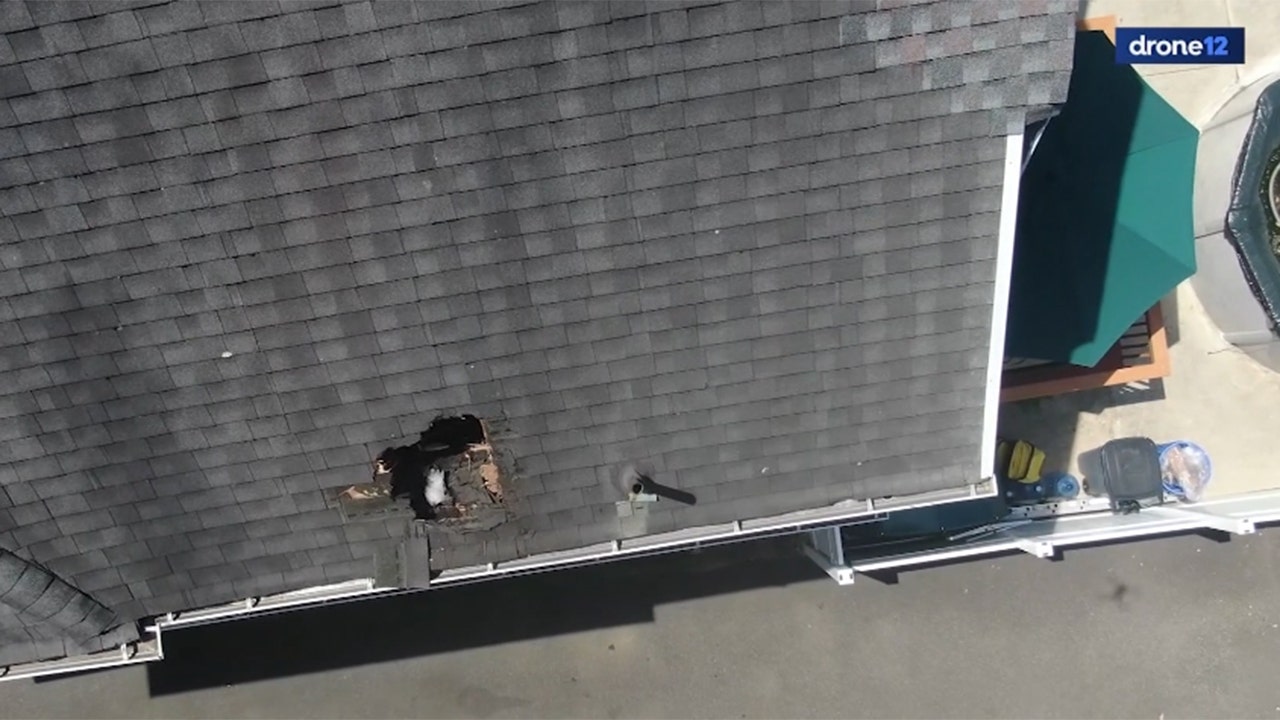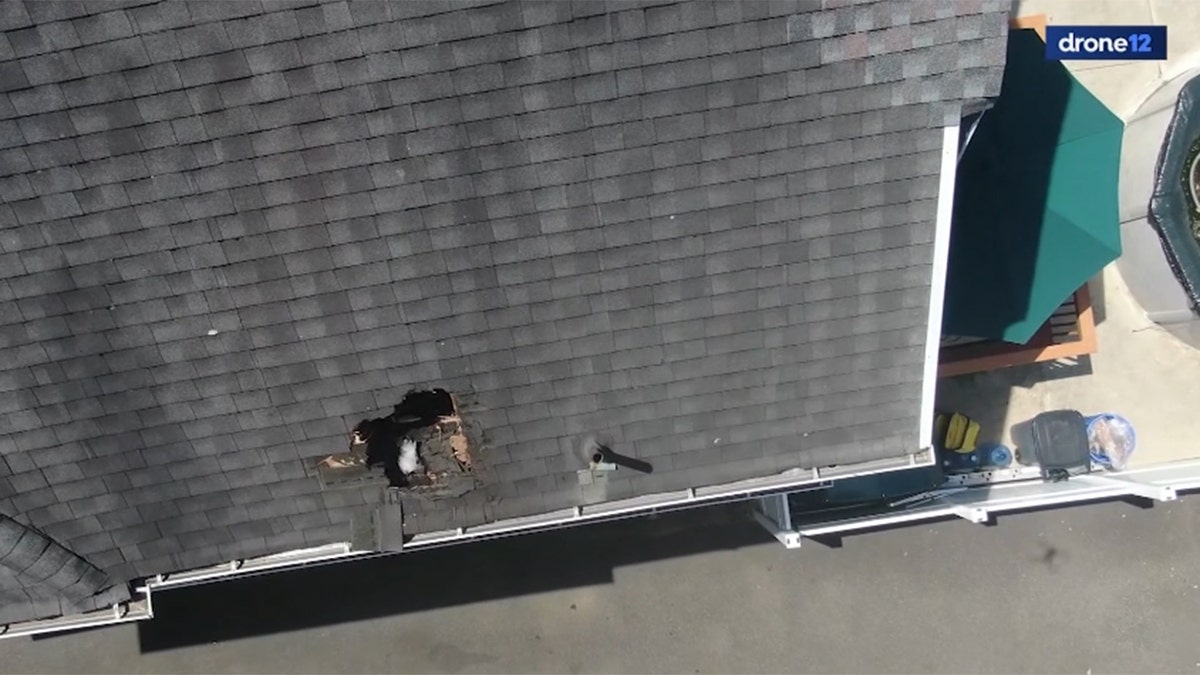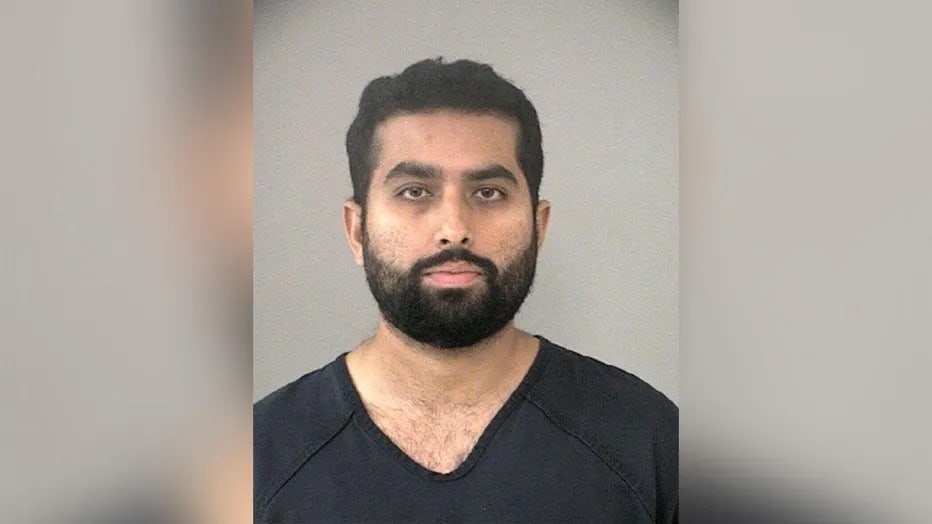New Jersey
Sharpe named executive director of Ronald McDonald House of Southern New Jersey | ROI-NJ

Tracey Sharpe has been named the executive director of the Ronald McDonald House of Southern New Jersey, its board of directors announced.
Sharpe has served as the interim director of RMHSNJ since October 2023 and has been a part of the RMHSNJ team since 2015. She has dedicated her professional life to social service and strengthening the fiscal health of South Jersey area nonprofits.
Sharpe brings a wealth of fundraising and leadership acumen to RMHSNJ. Her work has been recognized throughout South Jersey and the Philadelphia region by notable nonprofit organizations such as the Urban League of Philadelphia, Bunker Labs, St. John of God Community Services and AmeriCorps.
Sharpe’s background spans all aspects of nonprofit management as well as direct service. She has led staff teams, built fund development systems, authored strategic plans and spearheaded capital campaign directives.
Beginning as a grant writer for RMHSNJ, she has raised more than $2 million for the charity and seamlessly transitioned into major gift officer and interim director roles over the last nine years.
Vice Chairman Brett Levin applauded the announcement.
“Sharpe’s past experiences, both behind the scenes of nonprofits, as well as on the front lines, has primed her for this role to both serve, as well as elevate, the supports for critically ill children and their families residing at Ronald McDonald House of Southern New Jersey,” he said. “Her passion for the children and families we serve is evident in her everyday interactions with our guests as well as in her communications with area donors, sponsors, and hospital partners.”
Sharpe resides in South Jersey with her husband and their two children.

New Jersey
New Jersey’s most popular condiment isn’t what you’d expect

Condiment – noun: a substance such as salt or ketchup that is used to add flavor to food.
Summer means the start of barbecue season in New Jersey, so we’re going to be using a lot of condiments in the coming months.
Slathering a hot dog or hamburger with your favorite toppings is one of the best parts of an outdoor hangout in the summer, but do you think you can guess what the Garden State’s most popular condiment is?
Gourmet Grilled All Beef Hots Dogs with Sides and Chips
If it were up to me: it would be hot sauce. No question.
Whether it’s a national brand like Frank’s Hot Sauce or something Jersey-made like White House Station sauce, any food item is just a vehicle for me to basically set my tongue on fire.
whitehousesauceco via Instagram
However, a recent study shows that New Jerseyans prefer something much different when it comes to condiments.
The experts at The Cookie Rookie used Google search data to see which popular sauces are the most loved in each U.S. state and nationally.
According to their research these are New Jersey’s top ten searched sauces:
🔟 Ranch dipping sauce
22,200 annual searches
9️⃣ Hot sauce
22,400 annual searches
Hot sauce on a table
8️⃣ Tartar sauce
22,900 annual searches
7️⃣ Relish
26,300 annual searches
A bowl of relisch with Kirby pickling cucumbers in the background
6️⃣ Ketchup
27,300 annual searches
Heap of fried potato with ketchup on white background. Top view.
5️⃣ Mayonnaise
28,500 annual searches
Bowl with mayonnaise isolated on white background. Close up.
4️⃣ Salsa
31,800 annual searches
Mexican nachos and salsa with female hand
3️⃣ Pesto
45,600 annual searches
Fresh pesto with basil
2️⃣ Sriracha Sauce
46,000 annual searches
Photo by Chris Liverani on Unsplash
Drum roll for our number one most searched sauce in New Jersey…
1️⃣ Worcestershire sauce
Photo by Kelsey Todd on Unsplash
What? How? Why? Are we sure that this isn’t googled 50,600 times a year because nobody has a clue how to properly spell it?
I have to believe the only reason this is number one in NJ is because people aren’t googling “how to make grandma’s tomato pasta sauce,” otherwise there’d be no competition.
LOOK: Here are copycat recipes from 20 of the most popular fast food restaurants in America
The best supermarkets in New Jersey
These are the highest-rated supermarkets in each of New Jersey’s 21 counties. The ratings are based on reviews left by customers on Google. To be included in the top, a supermarket had to have a substantial number of reviews (typically at leas a thousand).
The post above reflects the thoughts and observations of New Jersey 101.5’s Kylie Moore. Any opinions expressed are Kylie’s own. You can follow Kylie on Instagram.
Click here to contact an editor about feedback or a correction for this story.
New Jersey
New Jersey couple just sitting in their backyard when massive object falls from sky 'out of nowhere'

The roof of a New Jersey home was severely damaged in a chilling incident when a large chunk of ice fell from above on Wednesday.
Paul and Sabrina Gomez were sitting in the backyard of their Patterson home at around 9:30 p.m. when the projectile came out of nowhere and left a gaping hole in the roof, the New York Post reported. The couple were seated at a table less than 12 feet from the impacted area.
“Out of nowhere you just hear a hollow sound coming down and honestly we didn’t think anything of it and then you just hear a big DOOOOSH!” Sabrina Gomez told News 12 New Jersey.
NJ POLICE EYE ABSENT PARENTS AFTER YOUNG MOBS UPEND FAMILY-FRIENDLY VACATION HOT SPOTS
The family rushed to the front of their house, where they took a video of pieces of ice spread out all over the driveway. The home sits directly underneath several flight paths, according to the news outlet.
A view of a massive chunk of ice that reportedly fell from a plane into the home of a family in New Jersey on June 12, 2024. (News 12 NJ)
“When we look up, it’s basically like a plane flying by,” said Sabrina Gomez.
The couple has filed a claim with the Federal Aviation Administration (FAA) to investigate. They believe the ice fell from a plane passing overhead.
The FAA told Fox News Digital that: “Generally speaking, we investigate reports that we receive about incidents such as this.”
The chilling incident comes nearly a year after a chunk of ice weighing between 15 and 20 pounds struck a Massachusetts home, according to the Associated Press.

A view of a massive chunk of ice that reportedly fell from a plane into the home of a family in New Jersey on June 12, 2024. (News 12 NJ)
CLICK HERE TO GET THE FOX NEWS APP
Jeff Ilg said he and his wife, Amelia Rainville, suspect the ice fell off an airplane traveling to Boston Logan International Airport. The ice chunk, which Ilg said was initially estimated to be 15 to 20 pounds and hit their home in Shirley, 50 miles west of Boston.
“We heard an explosion, basically,” he said. “The loudest pop, bang I’ve ever heard.”
The Associated Press contributed to this report.
New Jersey
States struggle with unreliable federal funding for making sure elections are secure • New Jersey Monitor

WASHINGTON — The federal government has sought to bolster election security for years through a popular grant program, but the wildly fluctuating funding levels have made it difficult for state officials to plan their budgets and their projects.
Rising misinformation and disinformation about elections, often fueled by conspiracy theories, as well as threats against election workers, make the grants especially important, according to elections officials.
But U.S. House Republicans are seeking to eliminate funding for election security grants — known as Help America Vote Act, or HAVA grants — in this year’s appropriations process, a move they unsuccessfully attempted last year as well.
“We continue to unnecessarily risk the very integrity of our elections and American democracy,” Georgia Democratic Rep. Sanford Bishop said Thursday during committee debate on the funding bill.
Bishop, a senior member of the House Appropriations Committee, said he was “concerned about the outdated and the insecure voting systems around the country that pose a very, very serious threat to our national security and to our democratic system.”
“It is irresponsible to ignore the wake-up call,” Bishop added. “Our nation’s election systems are currently and constantly under attack by foreign actors that are threatening our democratic values.”
The bill was approved by the GOP-led House Appropriations Committee with no money in it for the grants.
Gideon Cohn-Postar, legislative director at Issue One & Issue One Action, said during an interview with States Newsroom that while the grants have traditionally been bipartisan, several factors have affected backing for the program in recent years.
“It remains something that many Republicans in both the House and the Senate support,” Cohn-Postar said. “But it’s also been caught up, I think, in some of the false information about elections that began to spread in 2020.”
Former President Donald Trump, now the presumptive Republican presidential nominee, has continued to falsely claim that the 2020 election was stolen.
Issue One writes on its website that the organization strives to “unite Republicans, Democrats, and independents in the movement to fix our broken political system and build an inclusive democracy that works for everyone”.
Grant funding decreases
Congress approved $55 million in election security grants during the last appropriations process, which wrapped up this spring. That action came after the Republican-controlled House, which proposed zero dollars, conferenced with the Democratic-controlled Senate, which had proposed $75 million in funding.
That final funding level was a decrease from the $75 million that Congress approved in both fiscal 2023 and fiscal 2022.
Congress didn’t approve any election grant funding in the annual appropriations bill during fiscal year 2021. However, that followed lawmakers’ allocation of $425 million in the prior year’s bill as well as an additional $400 million in one of the COVID-19 emergency spending bills.
Cohn-Postar said that several states have sought to make their HAVA grants last more than one year by spending less than they receive, or saving the money up for bigger projects.
Louisiana, for example, hasn’t spent any of its election security grant funding since 2018, in preparation for overhauling its election system. New Hampshire passed a state law that collects the grant funding in an endowment and then only spends a portion of that each year.
But that “careful” budgeting and uncertainty about how much grant funding Congress might provide in the next year has led federal lawmakers to look at states’ use of the grants skeptically, Cohn-Postar said.
“The key thing we’ve come across … is about half of the states have only spent about half of their HAVA grants,” Cohn-Postar said. “And that gets brought up in every conversation that Congress has about these grants. They say, ‘Hey, why should we appropriate more if you haven’t spent?’”
Congress, he said, sometimes uses states’ “careful, thoughtful budgeting as an excuse to not give them money.”
Republicans in Congress are also looking to reduce federal spending overall and have made cuts throughout many of the dozen annual spending bills, including the Financial Services bill, which includes the HAVA grants.
‘Incredibly important’ in Maine
Maine Secretary of State Shenna Bellows said during an interview the grants “have been incredibly important, especially in the absence of sustainable elections funding from the federal government.”
“We have seen the rapid evolution of cybersecurity threats and threats against election infrastructure over the last several years,” Bellows said. “As the threats evolve, so must our preparedness. The election security grants are fundamental to our ability to make investments in improvements in our central voter registration system and cybersecurity protections for that system.”
Congress’ inability or unwillingness to create a predictable, stable funding program for states to administer federal elections is “unfortunate,” she said.
“We are very proud that Maine has always enjoyed safe, free and secure elections,” Bellows said. “But make no mistake, the lack of sustainable ongoing federal funding is a potential vulnerability in the future.”
Washington state Elections Director Stuart Holmes said in an interview he plans his annual budget around not getting HAVA election security grants and is pleasantly surprised when Congress does provide the funding.
“Through my entire career, there’s only been two rounds of HAVA that were significant investments into elections,” Holmes said. “So it’s a great surprise to get an extra million dollars at the beginning of the year. But it does make it pretty much impossible to prepare and plan for anything if you have to spend it.”
The grants don’t expire at the end of the fiscal year and the federal government doesn’t claw back unspent funding, allowing the states to take different approaches to how they use the money.
Holmes said during his interview with States Newsroom that the funding approved in fiscal 2020 allowed the state to “create an entire team of cybersecurity professionals to be dedicated to protecting our infrastructure.”
“In the state of Washington, we have a centralized voter registration and election management system, and never before had we had dedicated election professionals that are watching the logs, preparing our system, testing our system and collaborating with other professionals to do testing,” Holmes said. “So we’re in a better position than we’ve ever been.”
Even so, he said, “local election officials would certainly look forward to a stable funding source from the federal government as it relates to federal elections.”
New Hampshire election fund
New Hampshire Secretary of State David M. Scanlan said when Congress passed the HAVA program in 2002, it told states the funding was primarily to set up a statewide voter registration database, ensure every polling place had accessible voting equipment, provide poll workers with training and set up voter education programs.
The New Hampshire Legislature at the time told the secretary of state to use the initial allocation from Congress to meet the requirements, but then to establish an election fund with the remaining money.
Originally, the secretary of state could use one-twentieth of the total funding in the account for annual costs of maintaining the federal mandates, but that is currently one-twelfth of the total amount in the fund.
“New Hampshire has been doing a good job with the money that we have, but there’s no question that the funds have helped us put in place security measures for our electronic systems,” Scanlan said.
The state, he said, has used its federal election security grants to hire vendors that specialize in keeping the electronic systems safe.
When New Hampshire set up a new voter registration database, the state used the funding to ensure none of the software included anything nefarious.
“We’ve really been making sure that the systems that we’re building are clean and that there’s not something malicious lurking in the shadows,” Scanlan said. “We’ve taken some really good steps that give me real confidence that our systems are in good shape.”
Advocating for ‘consistent, reliable federal funding’
JP Martin, deputy communications director for the Arizona secretary of state, declined States Newsroom’s request for an interview with the secretary of state, offering only to provide written responses to questions on HAVA election security grants.
Martin wrote in an email that “fluctuating levels of federal funding have significantly impacted our strategic planning and budgeting.”
“The uncertainty of future allocations compels us to be cautious with expenditures, focusing on priorities such as enhancing physical security measures for voting equipment,” Martin wrote. “For instance, securing equipment in cages—now requires a liftgate-equipped truck due to their increased weight—demonstrates the challenges of managing technological and budgetary constraints under limited HAVA funding.”
Congress declining to provide election security grants in the future “could significantly strain Arizona’s election infrastructure,” he wrote.
“Currently, the state is under a hiring freeze, and our focus remains on supporting counties, especially with the recent changes such as the date of the primary and legislation extending ballot curing to weekends,” Martin wrote. “We are prioritizing increased cybersecurity training and advocating for consistent, reliable federal funding to ensure the smooth administration of elections, emphasizing the necessity of sustained financial support from Congress.”
-

 News1 week ago
News1 week agoIsrael used a U.S.-made bomb in a deadly U.N. school strike in Gaza
-

 World1 week ago
World1 week agoRussia-Ukraine war: List of key events, day 833
-

 Politics1 week ago
Politics1 week agoGeorge Clooney called White House to complain about Biden’s criticism of ICC and defend wife’s work: report
-

 Politics1 week ago
Politics1 week agoNewson, Dem leaders try to negotiate Prop 47 reform off California ballots, as GOP wants to let voters decide
-

 World1 week ago
World1 week ago‘Bloody policies’: Bodies of 11 refugees and migrants recovered off Libya
-

 Politics1 week ago
Politics1 week agoEmbattled Biden border order loaded with loopholes 'to drive a truck through': critics
-

 World1 week ago
World1 week agoDozens killed near Sudan’s capital as UN warns of soaring displacement
-

 World1 week ago
World1 week agoVideo: U.S. Official Responds to Israeli Strike on a U.N. School in Gaza















